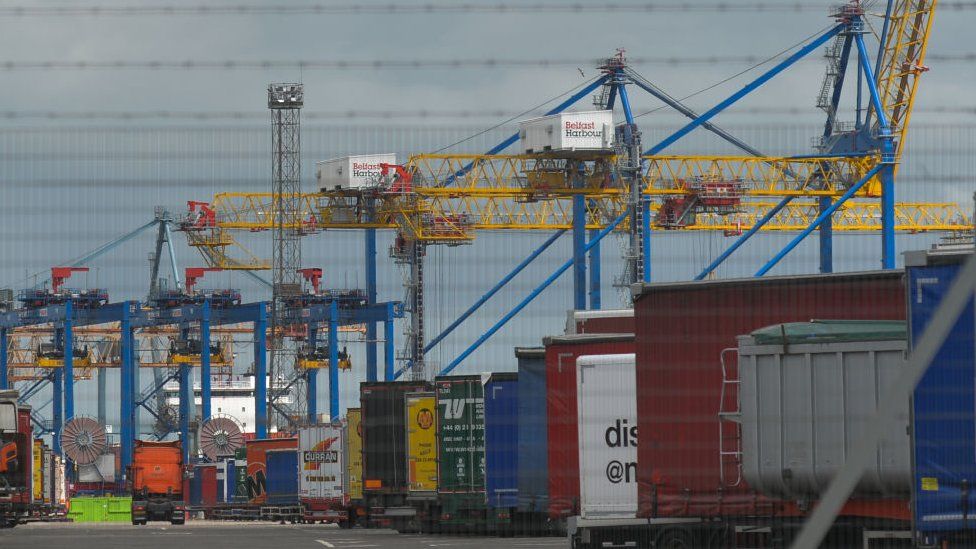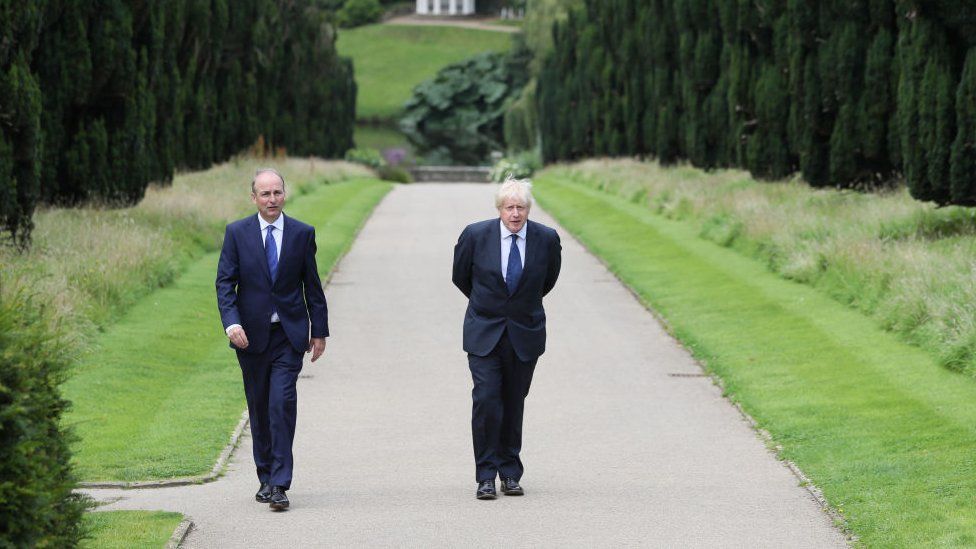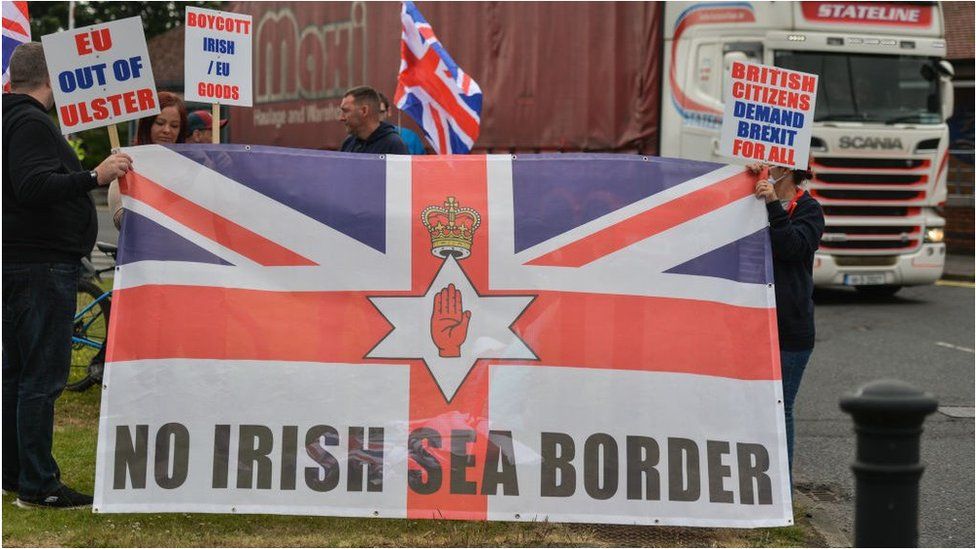In the 2020 Brexit agreement between the European Union and the former prime minister Boris Johnson, the Northern Ireland Protocol has been a point of contention.
The protocol was designed to avoid stopping goods as they crossed the border into the Republic of Ireland. As a result, Northern Ireland continues to adhere to some EU regulations while the rest of the UK does not.
The Northern Ireland Protocol Bill, introduced by Mr. Johnson to the House of Commons in June 2022, would grant the UK government the authority to unilaterally override certain provisions of the protocol.
Mr. Johnson claimed he wanted to "fix" the protocol because it had "upset the balance of the Belfast Good Friday Agreement" (the peace accord signed in 1998), which is a sharp contrast to what he said about it when he was negotiating it.
Mr. Johnson reportedly thinks it would be a "great mistake" to abandon the protocol bill, which is currently on hold while the UK and the European Union (EU) try to negotiate a new agreement.
We examined some of the assertions Mr. Johnson made prior to approving the NI protocol.
This commitment was made by Mr. Johnson in August 2020 and has since been made several times.
But as the protocol stipulated, NI is treated differently from the rest of the UK in terms of trade in goods. Consequently, the Irish Sea acts as a trade border.
This has caused the DUP great discontent, leading them to adopt the campaign slogan "No border in the Irish Sea.".
When asked about the cautions in the leaked Treasury document in December 2019 on Sky News, Mr. Johnson responded in this way.
His rejection of the document's main conclusions, however, was at odds with the realities of the NI deal.
The new EU-UK free trade agreement that was signed in December 2020 eliminated the possibility that tariffs or taxes would be applied to many goods moving from the United Kingdom to Northern Ireland, for example, which was one of the out-of-date sections of the Treasury document.
However, it was made clear that a number of administrative procedures, such as customs declarations, security checks, food safety inspections, and regulatory inspections of product standards, would affect trade between the UK and Northern Ireland.
Between 1 January 2021 and 20 March 2022, various checks (whether on documents or physical inspections) were made at NI ports on:, according to the NI Department of Agriculture, Environment and Rural Affairs (DAERA).
- 157,349 food consignments.
- 7,484 deliveries of live animals.
- Entry was denied to 147 shipments.
This was true despite a number of "grace periods," during which the full application of EU regulations was temporarily suspended to give businesses time to adjust to the new trading environment.
A businessman from Northern Ireland asked Mr. Johnson if he could inform his staff that customs declarations wouldn't be necessary for goods traveling from NI to GB. Mr. Johnson claimed he might.
The protocol's terms at the time implied that export declarations would need to be completed, and Steve Barclay, who was then in charge of Brexit, acknowledged this.
Although this part of the prime minister's promise was fulfilled when the requirement for official NI-GB customs forms was dropped during subsequent negotiations.

This was stated by Boris Johnson in response to a statement made by DUP MP Nigel Dodds in Parliament, who urged Mr. Johnson to rethink the protocol because it "drives a coach and horses through the Belfast Agreement.".
He recalled that in 2018, he had stated at the DUP conference that "no British Conservative government could or should sign up" to a deal that included regulatory checks and customs controls between GB and NI.
At a press conference in Sweden on May 11, 2022, Mr. Johnson stated that the Good Friday Agreement required "things to command cross-community support.". We must address the Northern Ireland Protocol's glaring failure to do that.
The consent mechanism for the protocol requires a vote from the assembly members. The initial consent vote is scheduled for 2024.

Following the agreement of the deal's terms, Mr. Johnson made this assessment in the House of Commons and urged MPs to support it. .
However, the protocol's annexes outline a comprehensive list of EU laws that would apply to NI, including the EU customs code and laws governing goods with an animal origin. .
The government's own impact analysis, which was published at the time, was unambiguous. According to EU regulations, goods entering Northern Ireland, including those from Great Britain, would be subject to regulatory checks. ".
Additionally, a Treasury internal document that was leaked a few weeks later stated that "customs declarations and documentary and physical checks. the NI economy will be severely disrupted.
Further highlighting potential constitutional ramifications, it was stated that Northern Ireland might be "symbolically separated" from the rest of the UK.
The Northern Ireland Chambers of Commerce discovered that a very high percentage of its members had experienced increases in the cost of goods and services as well as the time it took to transport goods one year after the changes went into effect.
Contact BBC Reality Check with the claims you want them to look into.
Check out more of Reality Check.







